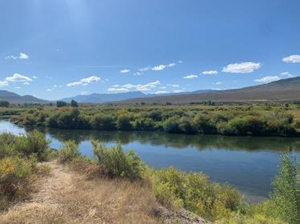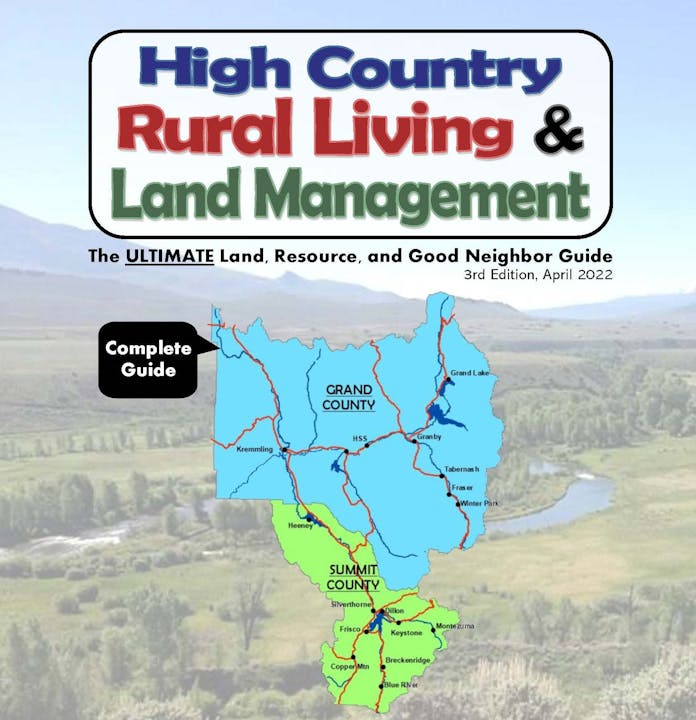Proper Land Management

Caring for Your Land
Ranchers have strong land stewardship ethics. Many newcomers to Grand and Summit Counties also have strong environmental ethics but are unfamiliar with local problems. The lack of proper land management and maintenance of healthy ecosystems can lead to the deterioration of natural landscapes.
Proper land management is a multi-faceted concept, similar to the spokes of a wheel. Imagine “proper land management” being the hub of wheel. The spokes include, but are not limited to, noxious weed management; healthy forest or rangeland management; proper grazing management; proper water management; knowing the local and state laws regarding fencing, water rights, implied easements, and “Right to Farm;” being a good neighbor; and continuing to maintain the health of your land over time.
Without the hub and spokes providing support for your wheel, it will not function properly and will eventually fail. The same thing could happen to your land if you do not take the proper precautions and actions to maintain its health and function.
Owners who value the conservation of their land and natural resources will reap the rewards of their hard work and prosperity.
Properly managed lands:
- Save money because they are more productive over the long-term
- Ensure better water quality for you, your animals, and your neighbors
- Provide higher quality wildlife habitat
- Produce more grass for grazing
- Grow healthier livestock
- Improve property values and attractiveness
- Make your neighbors happier
- Satisfy your responsibility to care for the land
Common Myth: I don’t own enough land to worry about proper land management.
People often assume that because they live on a small property or reside in town that natural resource management issues do not apply to them. The reality is that small acreage owners face the same resource issues as large acreage owners; they are just on a smaller scale. Whether you live on hundreds of acres or on the corner of two major city streets, you are still susceptible to:
- Noxious weeds infesting your field or flower bed
- Insects attacking your large forest or your single backyard tree
- Water erosion destroying your river bank or your gravel driveway
- Wildlife munching on your hay crop or your perfectly manicured lawn and garden
Yes, the size of problem may be reduced on smaller acreage properties; nevertheless, the problem still exists. Furthermore, the effect of that problem on smaller properties and their market values may be more significant compared to that of larger acreage properties.
Check out the other sections of our Ultimate Landowner Guide by clicking the link to the right.
References: 2, 10



